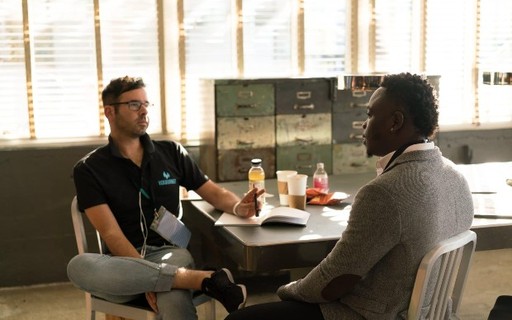

Entrepreneurs can take advantage of bankruptcy to expand business (Photo: Disclosure – Pexels)
Many entrepreneurs fear the word “bankruptcy” and avoid going down that path at all costs. However, some stories can contradict almost unanimous opinion. Executive Adam Zitsiff was CEO of Gold Gym, a California health club network, when the company filed the application in May 2020. “I don’t use the letter ‘F’,” he said at the time. His public relations firm preferred a euphemism: “restructuring through court process.”
But can bankruptcy be a good thing? Website Franchise Times Enlisted entrepreneurs who used the process to their advantage to do business. The first of them is Chris Rowland. The CEO of pet food company, Pet Supplies Plus, took swift action when news broke last November that a competitor, Pet Velu, was closing its 358 stores in the United States.
“We heard your liquidation announcement and contacted and talked to your real estate department. They provided us with information about stores we were particularly interested in,” Rowland says.
Pet Supply Plus acquired 40 stores with sales plans for the franchisee, half of which are owned, while the other half was in the hands of the franchisee shortly after closing.
“From start to finish, it was very quick. We did most of the bureaucracy and negotiations in 30, 45 days. We move much faster than usual. We have a very robust process and we have been able to expand our capacity” , said the CEO.
However, Rowland added a dose of caution. “You have to be careful not to get too excited. Although we were interested in a lot of properties, there were obviously many more that we didn’t take,” he explained. “We still reviewed the real estate process so that To ensure that assets make sense for our brand.”
For Greg Flynn, CEO of Flynn Restaurant Group, the bankruptcy of NPC International, which had more than 1,200 restaurants and $1 billion in debt, was a good acquisition opportunity. Flynn Restaurant Group announced in March that it had bought 937 units of Pizza Hut and another 194 Wendy’s restaurants, all owned by NPCs, for $522.5 million.
“The NPC bankruptcy lawsuit created great opportunities because they closed 300 stores,” Flynn said. Business restructuring also included retaining the best performing employees, which increased productivity.
Jeff Heitel, president and COO of Sisys, an American franchise restaurant specializing in pizza, cited a number of factors that led to the bankruptcy. “We had $83 million in bank debt from four banks, and as store volumes declined in the pandemic, we lost 100 stores. At the time, the company was not worth $83 million,” he said.
According to Hettel, suppliers and employees were paid, but guarantees were needed to honor commitments to leasing physical points. The way was to reduce the structure of the company.
“We had a big corporate headquarters. We moved back to our offices and distribution center years ago. It was a chance to make the machine leaner and more aggressive”, said the president of Sisys.
Since Cicis’ properties were left vacant, they were used for leasing out to franchisees. Then D&G Investors bought the brand. In total, this process took 34 days.



